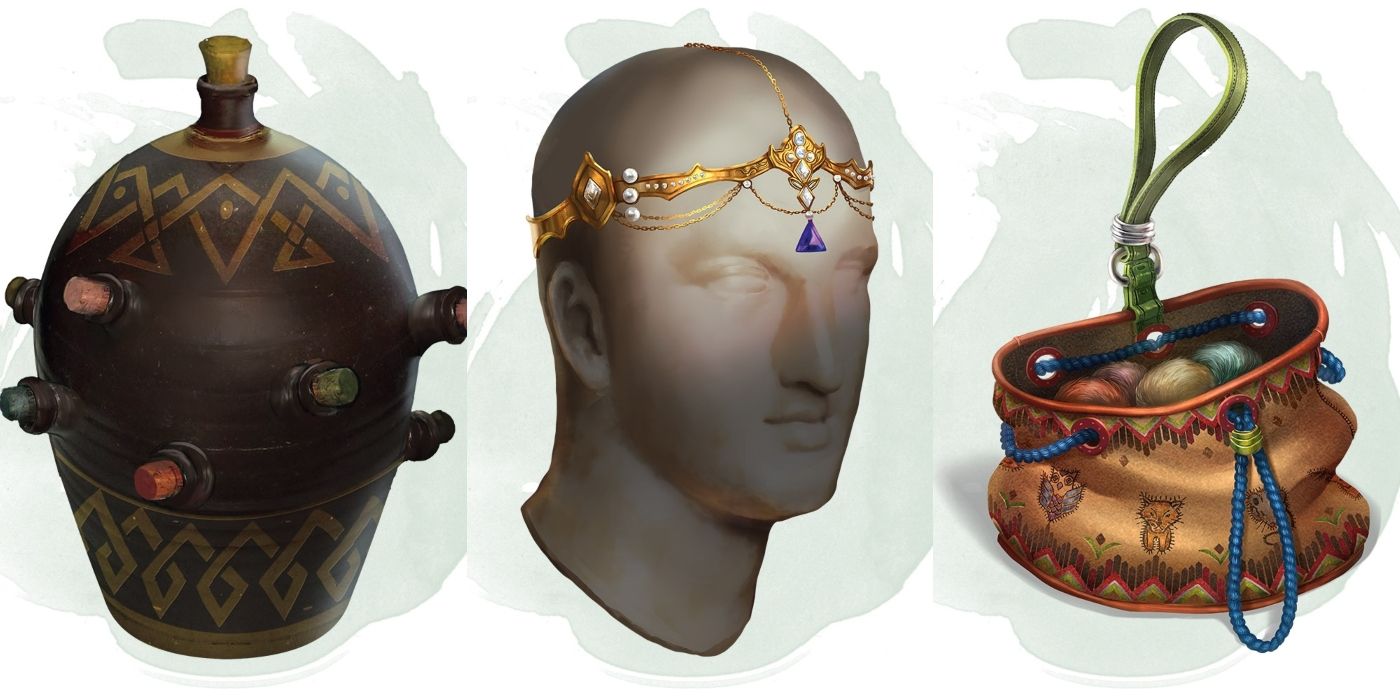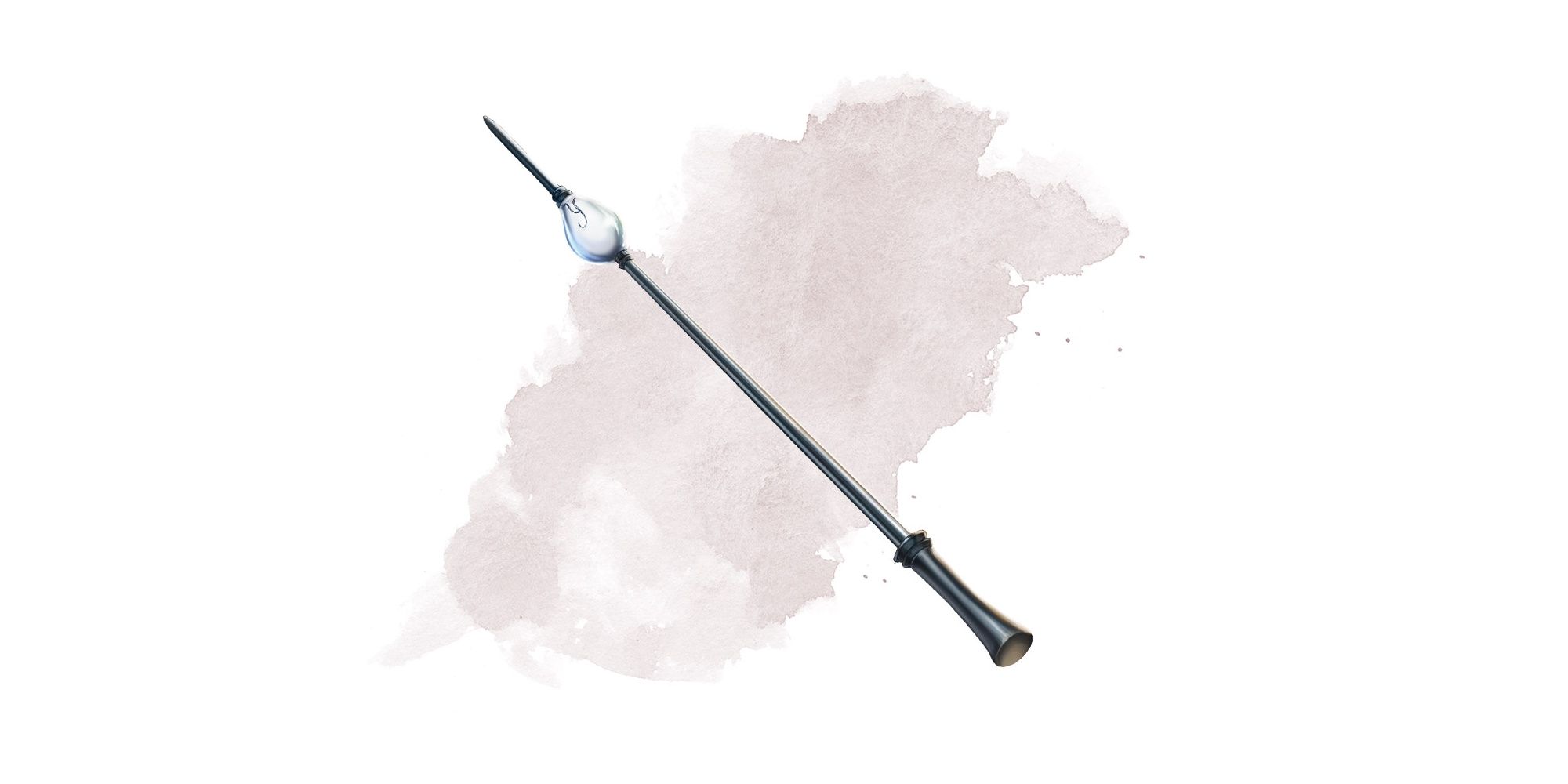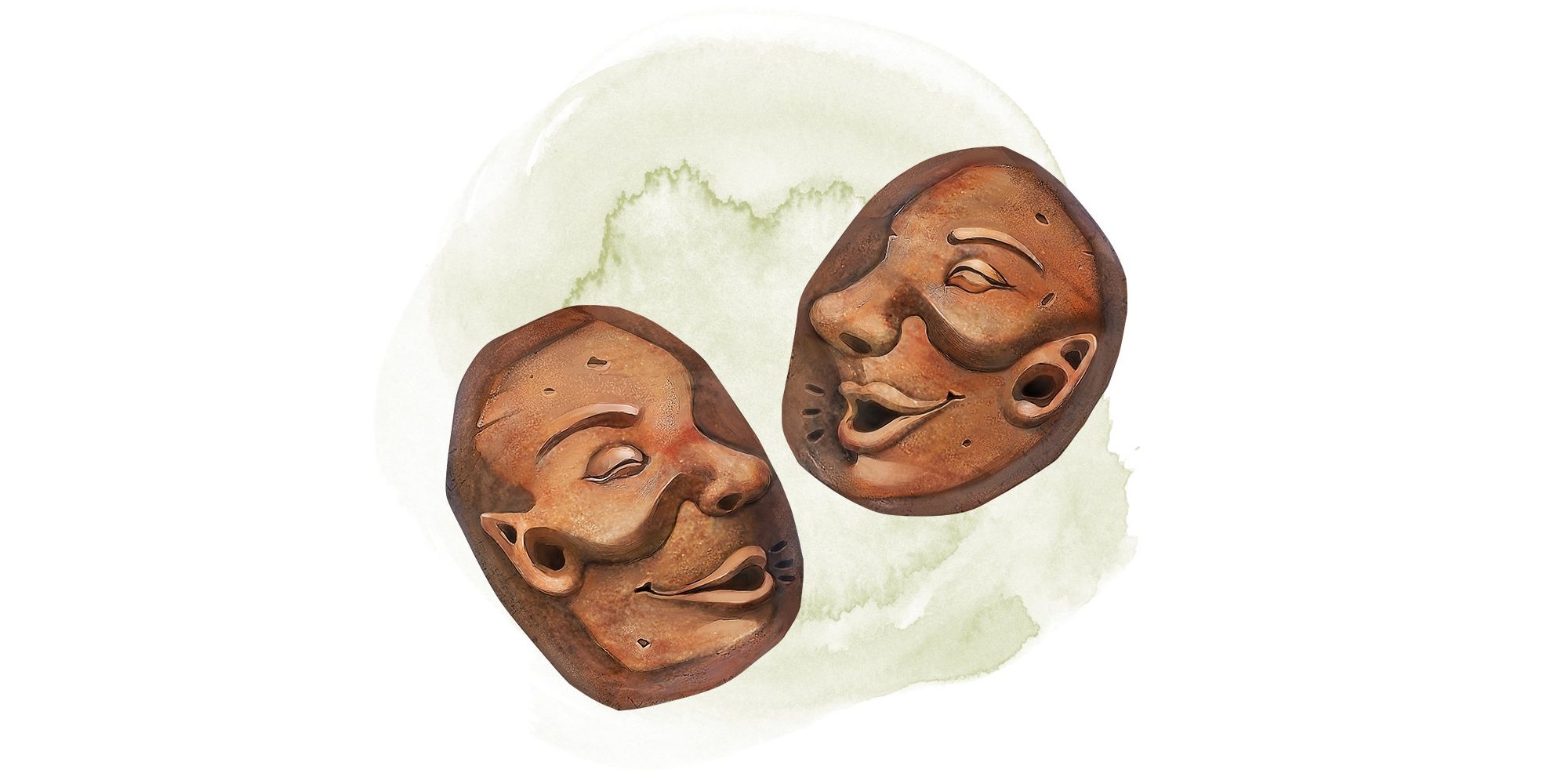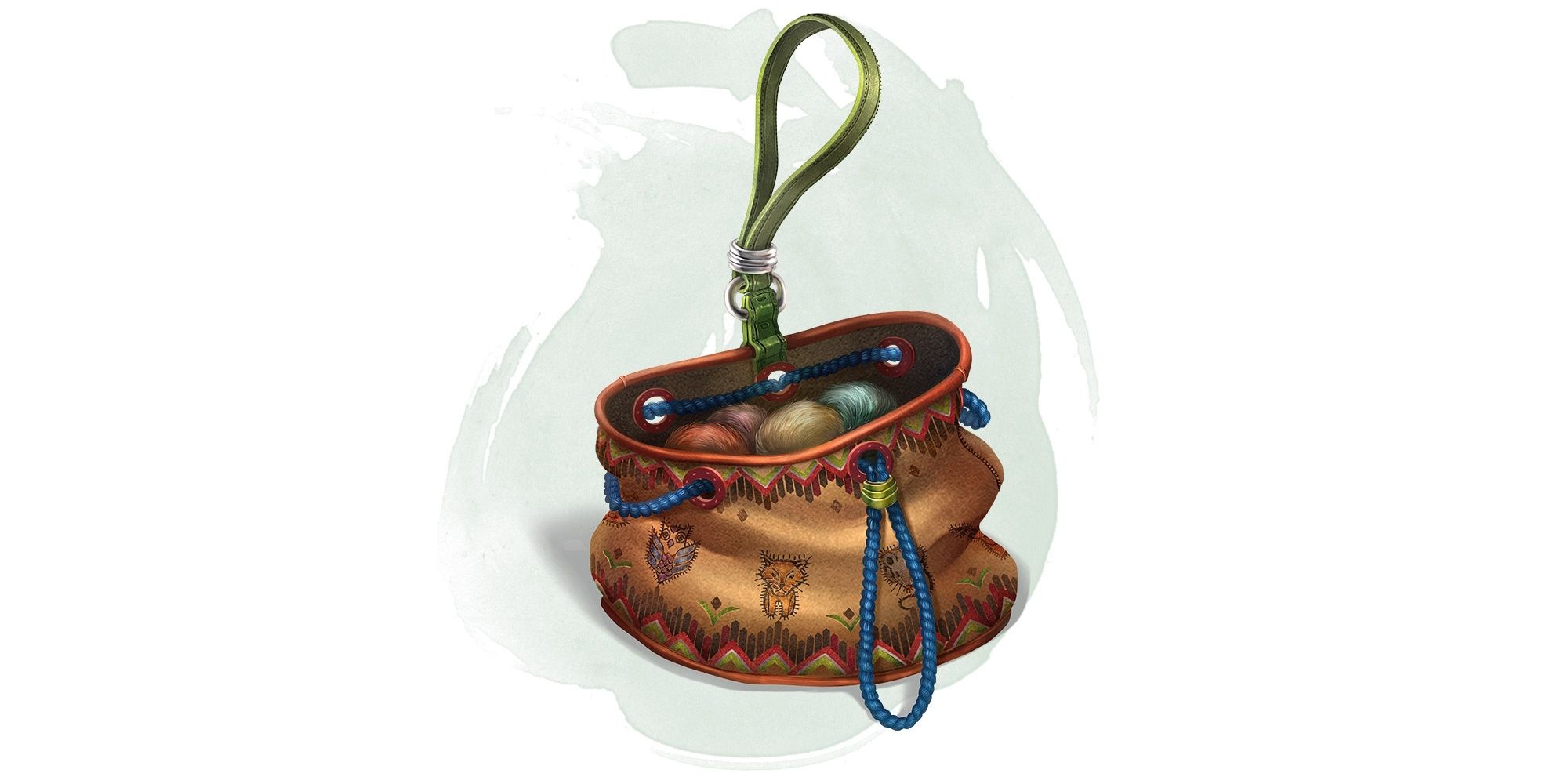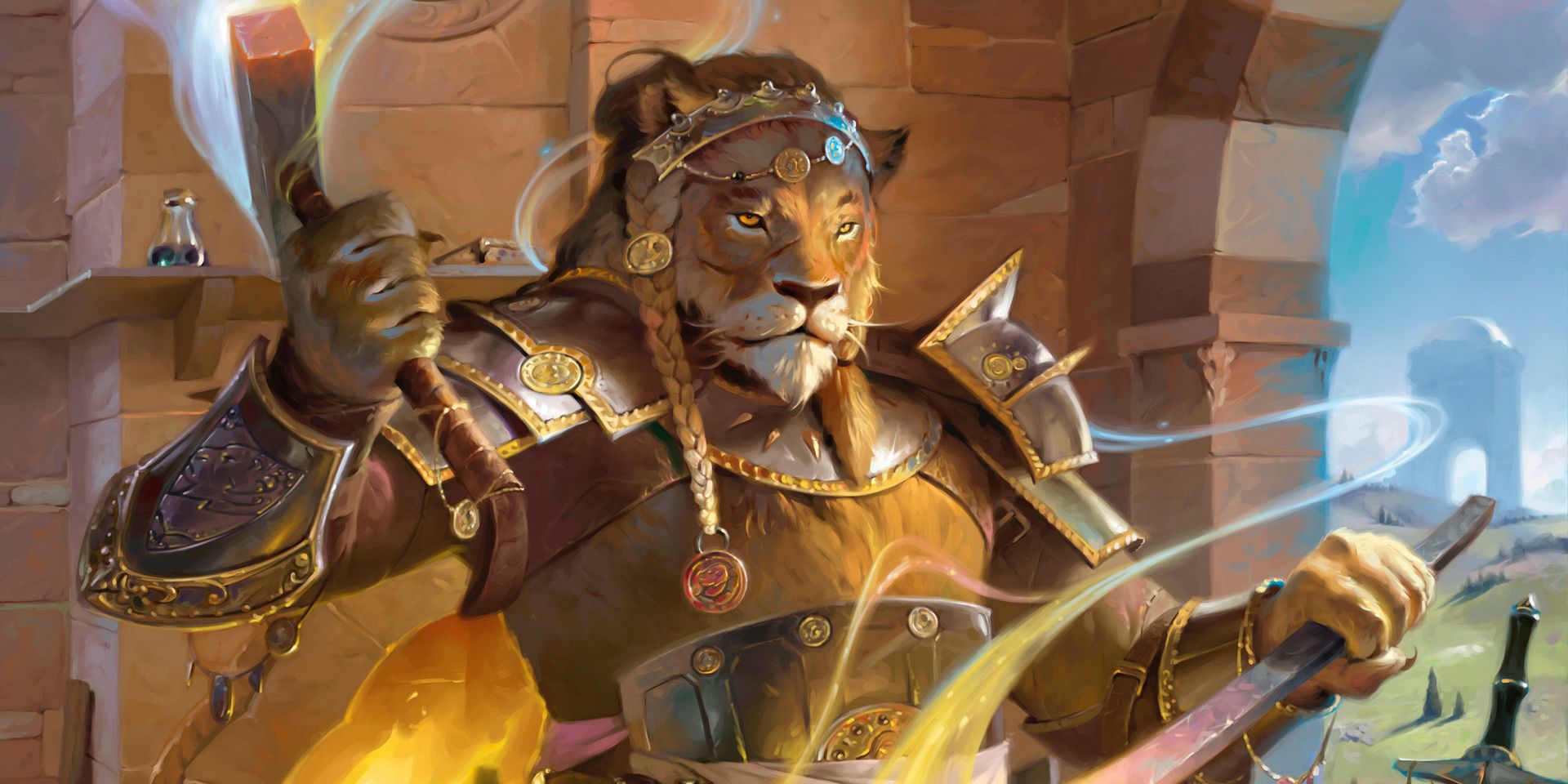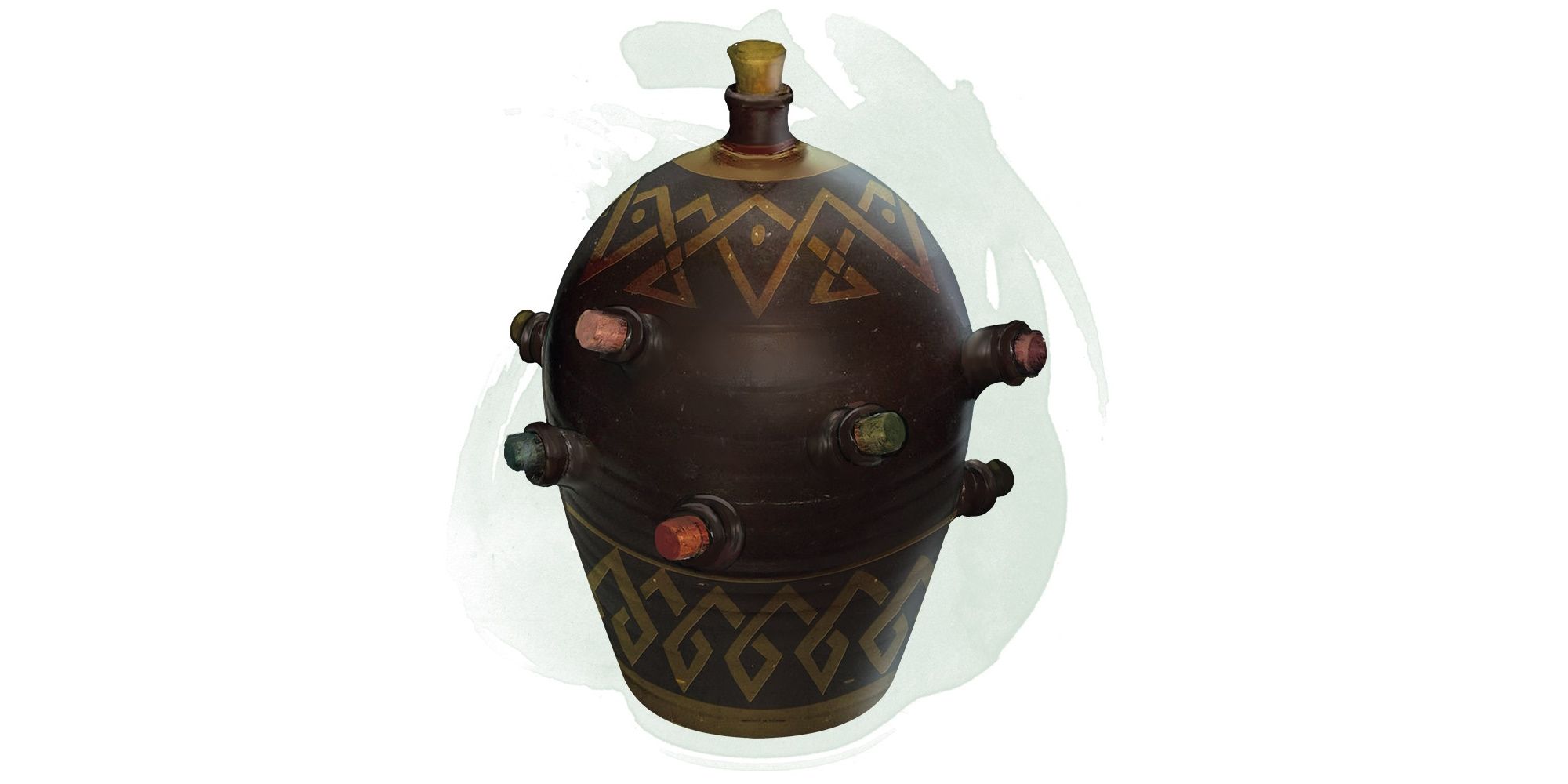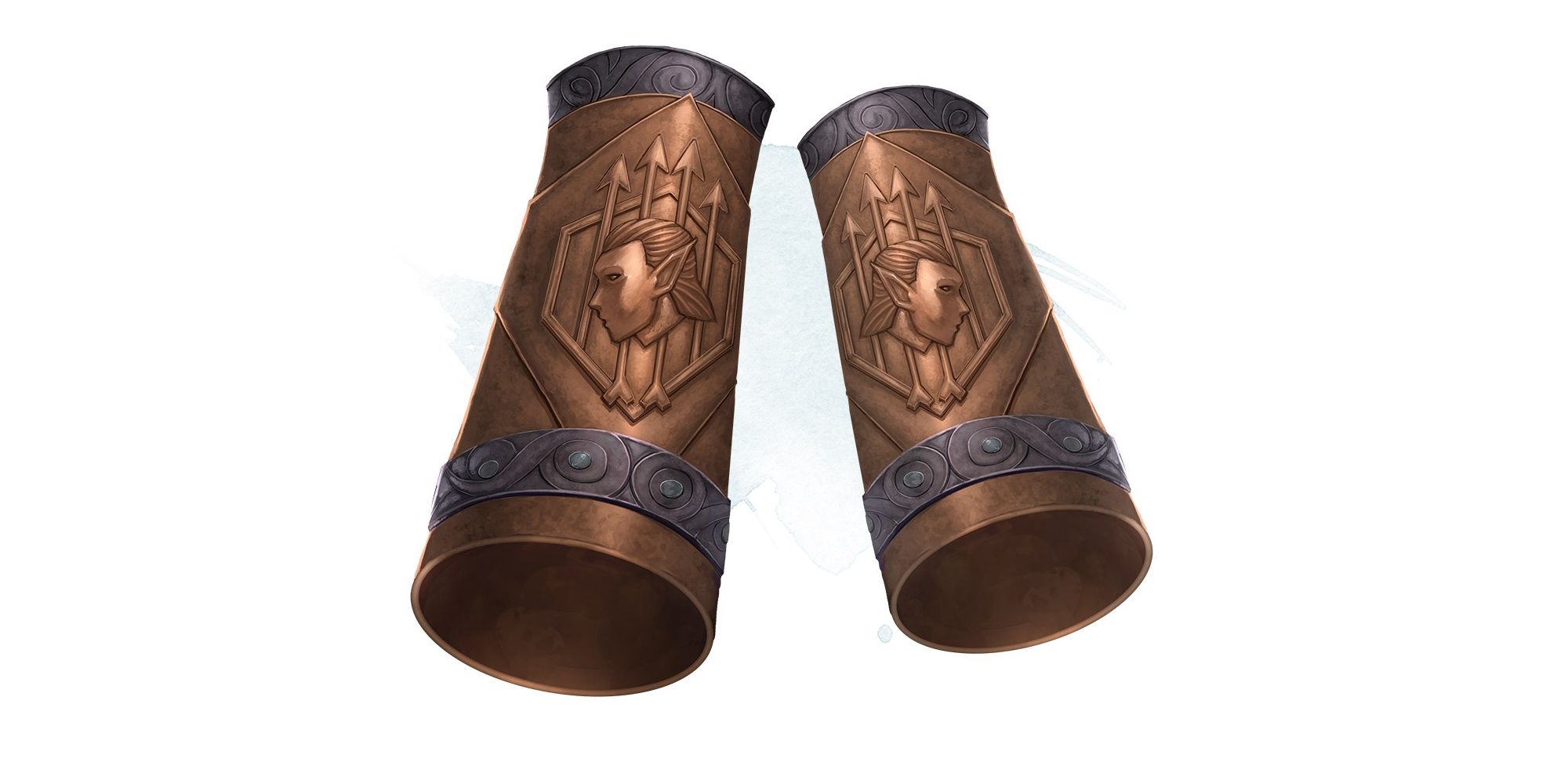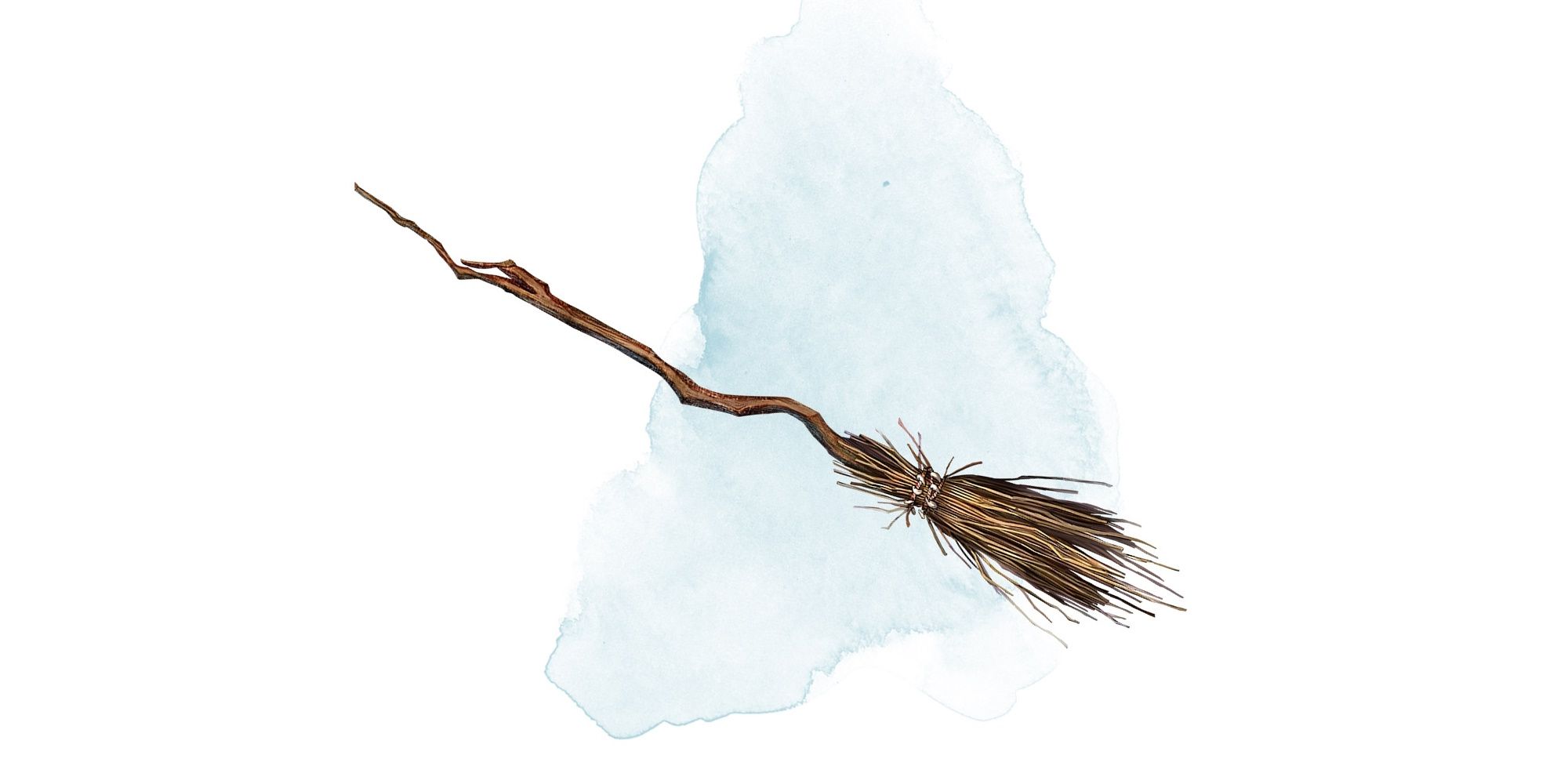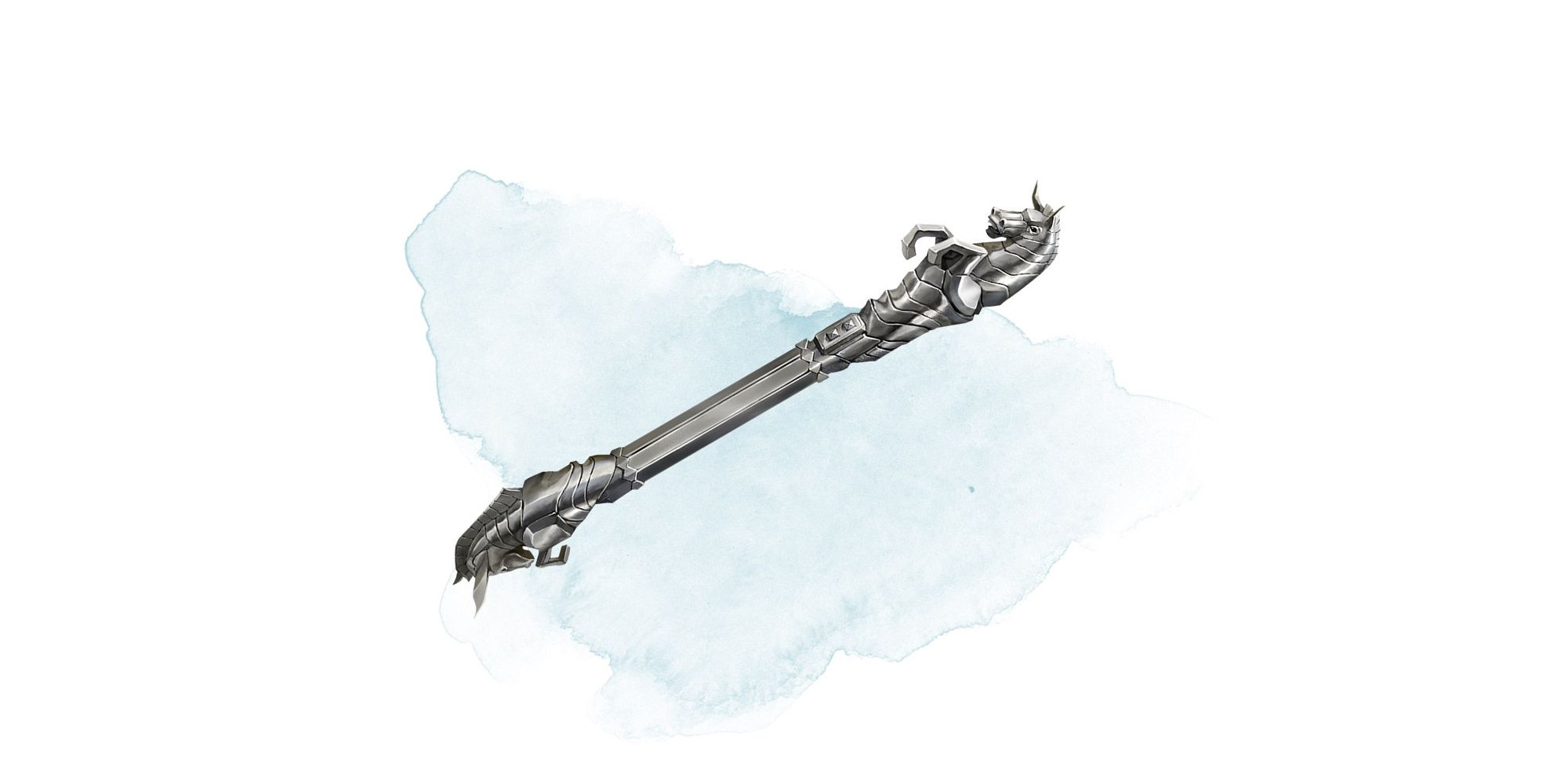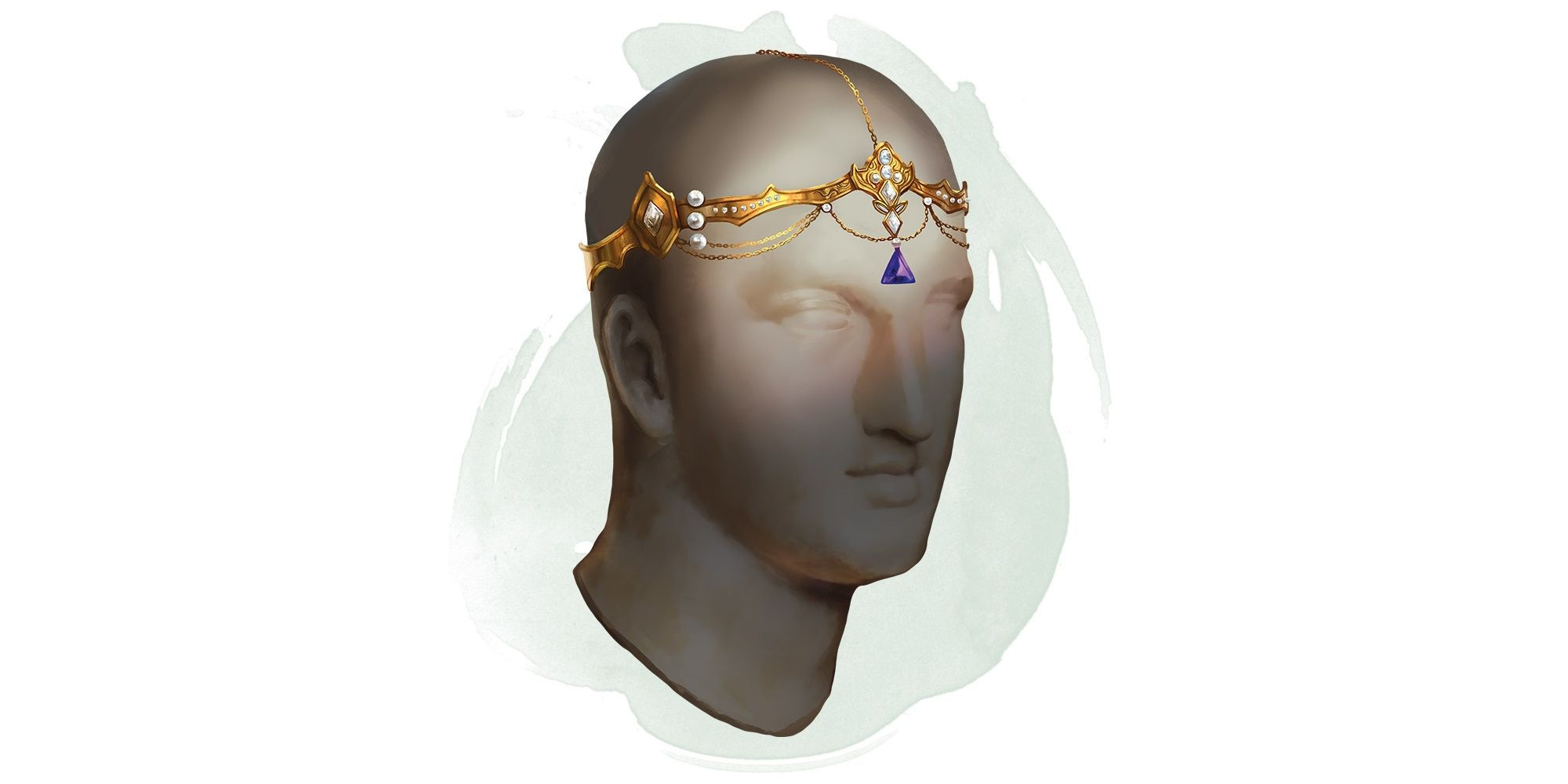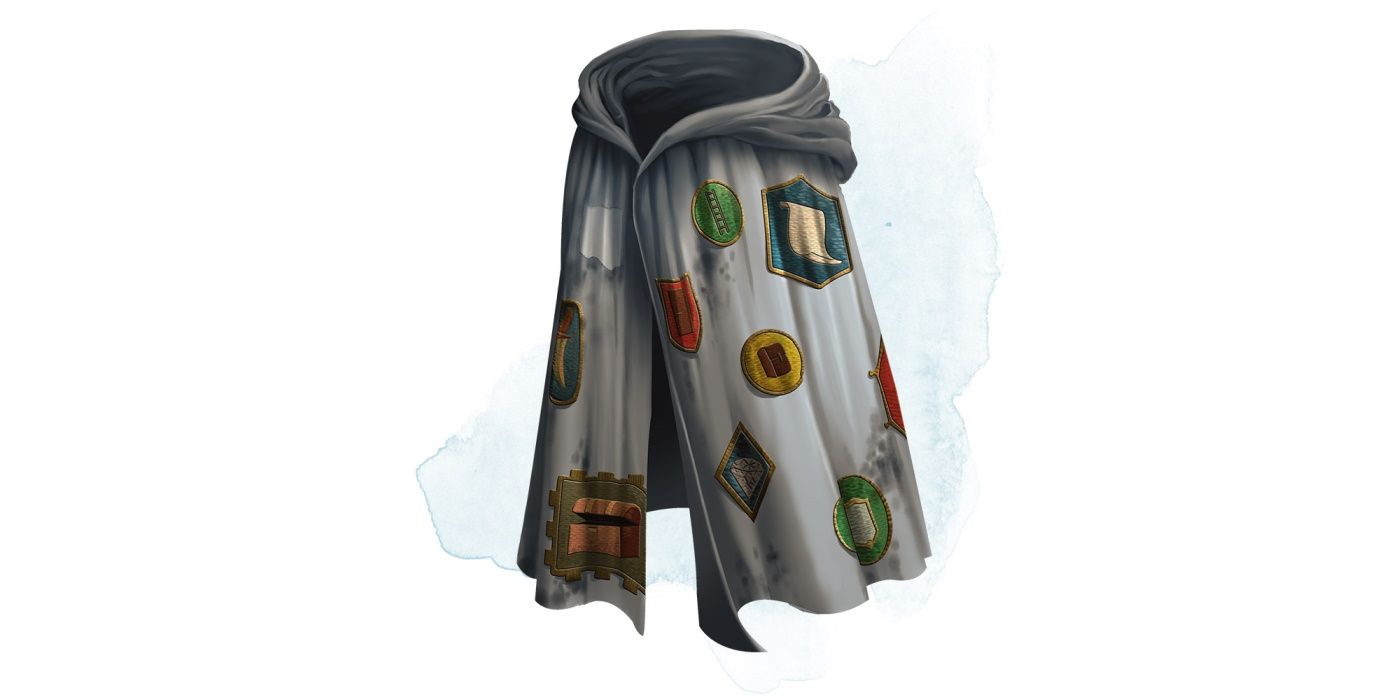Magic items in Dungeons & Dragons are great rewards for DMs to give to their players. However, there are some low-level items that, when given too early, can make characters a tad overpowered. To help DMs get a better idea of what items to give their players and at what level, they are divided into rarities. Nonetheless, there are some low-level items that, when given to player characters too early in a campaign, will take some of the challenge out of encounters or the experience as a whole.
Magic items can run the spectrum in DnD from the weird to the extremely powerful. These items can offer solutions to problems players face or serve as demonstrations of their progression through the adventure. While most common or uncommon magic items don't impact gameplay too heavily, however, there are some DMs should keep in mind when handing out rewards to low-level parties during their DnD adventures.
10 Wand Of Magic Detection
Detect magic is an incredibly useful spell in DnD. Allowing players to sense the presence of magic within 30 feet of them, detect magic is a great way to find magic items on the party's travels. Detect magic even tells the caster the school of magic, which can sometimes make solving magical puzzles a breeze.
The Wand of Magic Detection is a pretty overpowered uncommon item for that very reason. The wand has three charges that allow any character, spellcaster or not, to cast detect magic without using spell slots. If given too early to players, this wand can make certain areas of a DnD campaign far too easy.
9 Sending Stones
Communication in DnD is important. Whether it be over long distances or simply in another room if the party has been split up, being able to talk magically is a great boost. So having a pair of Sending Stones at low-level can be a game changer, literally.
Sending Stones come in pairs and allow the players to use the sending spell between the two stones. Using 25 words or less, players are able to communicate across any distance and even other Dungeons & Dragons planes. The benefits of having Sending Stones are huge but can make things too convenient early in a campaign.
8 Bag Of Tricks
Looking like an ordinary bag, the Bag of Tricks is a low-level magic DnD item that is deceptively overpowered. There are three versions of the bag - gray, rust and tan - and each bag contains small fuzzy balls. Players can take out up to three of these per day, and a creature will appear. The creature is determined by the bag's color and by rolling a d8 on the corresponding table.
This creature will stick around and help the party until the next dawn or until it is reduced to zero hit points. At low levels, this effectively gives the DnD party up to three extra members for combat or scouting. While some of the creatures are fairly low level such as weasels, owls or goats, there are also some creatures not to be sniffed at. The Gray Bag of Tricks is easily the most overpowered having a giant badger, a dire wolf and a giant elk as options to assist the players.
7 Adamantine Armor
Having good armor at low levels is important as it boosts a player's AC which can sometimes make all the difference in a fight. There are plenty of magic armors in DnD for DMs to choose from, but some are a little more overpowered than others for the early stages of a campaign. Adamantine Armor is a great example of that, as it's versatile enough to cover both medium and heavy armor options.
Adamantine Armor even has two options that don't impose disadvantage on Stealth checks allowing for a decent boost to AC without sacrificing stealth. However, the greatest benefit of Adamantine Armor is that it cancels critical hits, making all natural 20s against the player wearing it pointless. This definitely takes some of the jeopardy out of low-level DnD encounters.
6 Alchemy Jug
The Alchemy Jug is an uncommon magic item and one packed with the potential to derail campaigns at low levels. The jug can produce several liquids and has a handy table to show how much of each liquid it can produce in a day. Then the jug resets each dawn allowing the DnD party to produce more of whatever they desire.
The Alchemy Jug is capable of making substances such as fresh water, honey, and mayonnaise, rendering rations useless, which can severely impact campaigns that rely on resource management, such as Out of the Abyss or Tomb of Annihilation. However, it is also able to make acid, poison, and oil, all of which have practical uses capable of taking out enemies. The Alchemy Jug is a fantastic item, but if given to a party too early can undermine aspects of particular DnD campaigns.
5 Bracers Of Archery
The Bracers of Archery, as the name suggests, are uncommon magic items to improve a DnD character's archery. The bracers make for some of the best armor for DnD rangers with their +2 bonus to damage rolls made with a shortbow or longbow. However, this buff is quite significant at lower levels.
With the Archery Fighting Style DnD rangers gain at level two, which grants a +2 to attack rolls, these bracers would make even the most basic bow essentially a +2 weapon. With +2 to damage in addition to whatever damage bonus they would already get from their Dexterity modifier, ranged characters would be at a distinct advantage. Rangers, fighters and any other party member proficient in simple ranged weapons can use the Bracers of Archery to deal serious damage early in a campaign.
4 Broom Of Flying
Flying in DnD is a little broken, especially at low levels. While many high-level enemies might have the ability to fly or take down players in the air at the beginning of a campaign, most enemies players will face will have their feet on the ground. That's why giving a Broom of Flying to a low-level party can make them overpowered.
The broom looks just like a normal broom, but when a command word is spoken, it begins to hover. The Broom of Flying has a flying speed of 50 feet, which is nuts and can carry up to 400 pounds. For an uncommon DnD magic item, the Broom of Flying gives players such an advantage in combat it's not difficult to understand why some DMs ban it before a set level.
3 Immovable Rod
While it might not sound it, DnD's Immovable Rod is one of the most versatile magic items players can have. The rod has a button on one end that, when pressed, activates the enchantment. From that point on the rod cannot be moved until the button is pressed again or a DC 30 Strength check is passed.
The rod can hang in midair and hold up to 8,000 pounds of weight. The Immovable Rod has many possibilities, from holding a door closed to saving players from a fall to holding a giant enemy in place. The only limit is the DnD player's imagination which makes it a fun but overpowered item at low levels.
2 Headband Of Intellect
Some magic items can make a player’s DnD character overpowered by giving them additional resources and some do it by boosting what they already have. The Headband of Intellect is one such example, as this uncommon item ups its wearer's Intelligence score to 19 while they are attuned to it. An Intelligence score of 19 would grant +4 modifiers, and depending on their class, this can break the game a little.
Artificers, wizards and several subclasses will use Intelligence for their spellcasting, turning any DnD players wearing this into gods at low levels. The party could even go a little wild and put the Headband of Intellect on an animal to raise its intelligence like a budget version of awaken, creating a new party member.
1 Robe Of Useful Items
The Robe of Useful Items is an almost game-breaking magic item that can change the course of a DnD campaign. This simple-looking robe is covered with patches that the player can rip off to reveal items underneath. While some are practical such as rope, lanterns, or a ladder, others are things low-level parties shouldn't have access to too soon.
By rolling on a table, patches can contain 10 gems worth 100 gold each, a bag of 100 gold pieces, or a silver coffer worth 500 gold. This can easily fund a low-level party eliminating the financial motivation for completing quests. Other patches players could have are two mastiffs, a riding horse, a spell scroll, and four potions of healing, all of which provide an unfair advantage at the beginning of campaigns. The Robe of Useful Items is definitely one uncommon magic item that should be used with care in low-level Dungeons & Dragons games.

